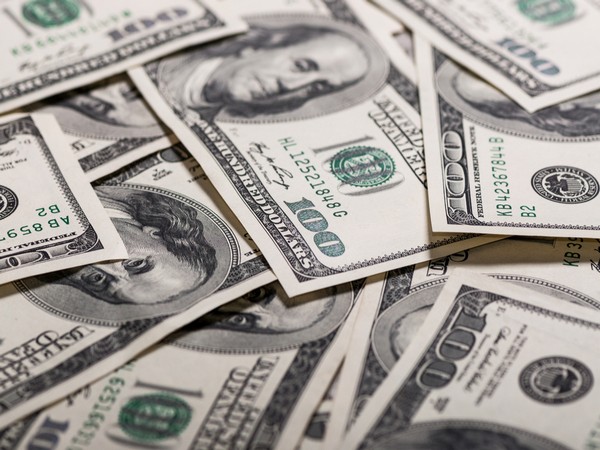FOREX-Dollar plumbs two-year lows; Aussie and Kiwi stabilise
The dollar index hit its lowest in more than two years on Thursday, while the euro held above $1.21, as signs of progress towards U.S. fiscal stimulus and optimism about COVID-19 vaccines kept investors upbeat even as the equity rally paused.

The dollar index hit its lowest in more than two years on Thursday, while the euro held above $1.21, as signs of progress towards U.S. fiscal stimulus and optimism about COVID-19 vaccines kept investors upbeat even as the equity rally paused. Lawmakers in Washington have failed to reach an agreement on economic stimulus to help relieve the impact of COVID-19 in the United States, but there were early signs that a $908 billion bipartisan proposal could be gaining traction.
Risk appetite was also boosted by optimism about recent developments towards the roll-out of COVID-19 vaccines. The UK approved Pfizer Inc's vaccine on Wednesday. Although the rally in European equities paused for breath, as data underscored the economic damage caused by the pandemic, currency markets were still "risk-on".
The dollar fell, hitting as low as 90.834 versus a basket of currencies - its lowest since April 2018. At 1124 GMT, it was at 90.918, down 0.1% on the day. Joel Kruger, market strategist at LMAX Group said the expectation of further stimulus meant that markets continued to look on the bright side.
"The market right now is focused on continuing to shrug off any downside risk and continuing to be fixated on any positive developments around the vaccine, around fiscal stimulus and, as things progress towards year-end, perhaps most importantly around messages and communications from the Federal Reserve and U.S. administration," Kruger said. Although tensions between the United States and China pose a downside risk, the latest developments have had limited impact on global markets because of the expectation of more normalised trade relations under the Biden administration.
The euro was also at its highest in more than two years, having crossed $1.21 on Wednesday. It rose to as high as $1.2139 on Thursday. At 1136 GMT, it was at $1.2127. The European Central Bank has said it will provide further stimulus to help the euro zone when it meets on Dec. 10. Market participants will also be paying close attention to any comments about the euro's strength.
LMAX Group's Kruger said he would expect the ECB to express discomfort with the additional currency appreciation. The moves in the euro are largely due to dollar weakness, rather than euro drivers, ING strategists wrote in a note. Deutsche Bank strategists said that euro-dollar could reach $1.30 by the end of 2021.
The European Union is embroiled in a dispute with members Hungary and Poland over its budget and COVID-19 recovery fund. The announcement of the recovery fund plan saw the euro surge earlier this year. "If one considers how clearly the euro benefitted from the EU countries being able to agree on the recovery fund in July it does come as a surprise that the euro is not suffering more significantly now that the project is on the brink," Commerzbank strategist Esther Reichelt wrote in a note to clients.
The Australian dollar - seen as a liquid proxy for risk - was up 0.1% on the day at 0.7423 at 1145 GMT, having earlier hit new two-year highs. The kiwi dollar also held near recent highs, up 0.1% on the day at 0.7072.
The Japanese yen was steady at 104.3 at 1146 GMT, while the safe-haven Swiss franc was up around 0.2% versus the euro at 1.082. The pound was at $1.3441, helped by the dollar weakness, as Brexit negotiations continue. EU diplomats said they hoped a Brexit trade deal with Britain could be agreed by Friday or at the weekend.
(This story has not been edited by Devdiscourse staff and is auto-generated from a syndicated feed.)
- READ MORE ON:
- Japanese
- Swiss
- European
- Australian
ALSO READ
Japanese Prime Minister Fumio Kishida to speak to Congress as doubts linger over American global leadership
EXPLAINER-Why is the Japanese yen so weak?
Biden will meet with Philippine and Japanese leaders as worry grows over China's Indo-Pacific action
On eve of Japanese prime minister's visit to North Carolina, Fujifilm announces more jobs there
Japanese interpreter charged with stealing $16 million from MLB star Shohei Ohtani










